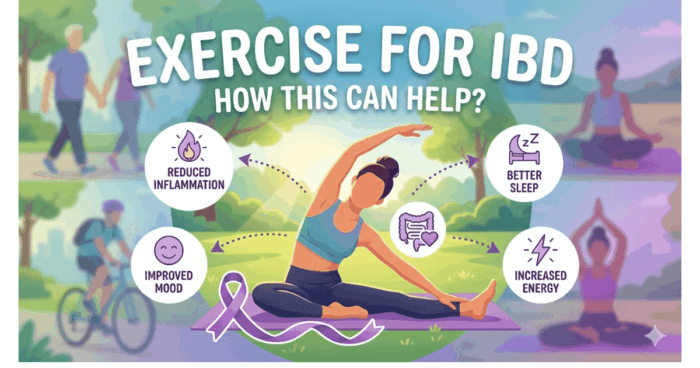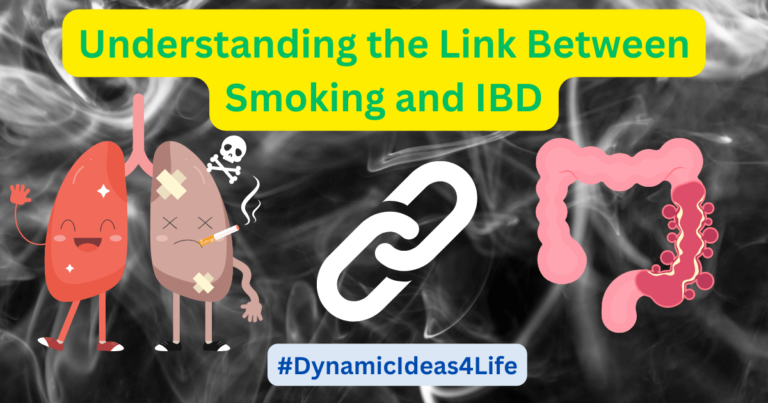Finding ways that work for Managing and Preventing IBS Flare Ups is a HUGE deal for those that have to deal with this condition. Anyone with IBS will know the pain that can occur every morning after waking up each day. Some will find that some mornings are better than others whilst for others it can seem there is no relief.
However, for those that really struggle with IBS flare-ups, there are things that can be done to help bring this condition under control.
In today’s post, we will look at what these methods are and how you can implement these ideas for yourself. So if you are someone that is affected by frequent painful IBS Flare-Ups then please keep reading.
Finding Relief: Proven Methods for Managing and Preventing IBS Flare-Ups
Irritable Bowel Syndrome (IBS) is a common gastrointestinal disorder that affects millions of people worldwide. IBS is characterized by a variety of symptoms, including abdominal pain, bloating, diarrhea, and constipation.
These symptoms can have a significant impact on daily life, causing discomfort and affecting productivity and overall well-being. So, understanding IBS and finding effective ways to manage its symptoms is crucial for those living with this condition. Something that anyone living with IBS will know and only too well.
I have personally suffered from IBS for as long as I can remember. For me, it can be quite unexpected when I experience more severe symptoms but usually, it is every morning that I need to relieve myself. Depending on what I eat I can also experience flare-ups during the night so getting to know your body is very important.
Understanding IBS: A Brief Overview of Irritable Bowel Syndrome
IBS is a chronic disorder that affects the large intestine (colon). It is considered a functional disorder, meaning that there are no structural abnormalities in the digestive system.
The exact cause of IBS is unknown, but it is believed to be a combination of factors, including abnormal muscle contractions in the intestines, increased sensitivity to pain, and disturbances in the communication between the brain and the gut.
The symptoms of IBS can vary from person to person, but common symptoms include abdominal pain or discomfort, bloating, gas, diarrhea, and constipation.
These symptoms can be intermittent and may worsen during times of stress or after eating certain foods.
It is important to note that IBS does not cause permanent damage to the intestines or increase the risk of developing other serious conditions such as colon cancer.
How to Pinpoint the Causes of IBS Flare-Ups
One of the key steps in managing IBS is identifying triggers that can cause flare-ups of symptoms. Keeping an IBS symptoms diary can be helpful in tracking patterns and identifying potential triggers.
In this diary, individuals can record their daily symptoms, as well as any foods or activities that may have contributed to their symptoms.
Common triggers for IBS flare-ups include certain foods, stress, hormonal changes (such as those experienced during menstruation), and certain medications.
Foods that are known to trigger symptoms in some individuals include high-fat foods, spicy foods, caffeine, alcohol, and artificial sweeteners. Gluten and dairy for me can also be troublesome but I am usually OK.
Stress and anxiety can likewise play a significant role in exacerbating IBS symptoms. So this may be something to think about.
However, If self-identification of triggers is not sufficient, it may be necessary to seek professional help for further testing and diagnosis.
A healthcare professional, such as a gastroenterologist, can perform tests to rule out other conditions and provide guidance on managing IBS symptoms.
The Role of Food in Managing IBS Symptoms
Diet modifications can play a significant role in managing IBS symptoms. One dietary approach that has shown promise in managing IBS symptoms is the low FODMAP diet.
FODMAPs are a group of carbohydrates that are poorly absorbed in the small intestine and can cause symptoms such as bloating and diarrhea in individuals with IBS.
The low FODMAP diet involves avoiding or limiting foods that are high in FODMAPs, such as certain fruits, vegetables, grains, and dairy products.
In addition to the low FODMAP diet, there are other dietary approaches that may help manage IBS symptoms. These include eating smaller, more frequent meals, avoiding trigger foods, and increasing fiber intake.
It is important to note that dietary modifications should be done under the guidance of a healthcare professional or registered dietitian to ensure proper nutrition and avoid unnecessary restrictions.
Maintaining a balanced diet and proper hydration is also important for managing IBS symptoms.
Drinking enough water and consuming a variety of nutrient-rich foods can help support overall digestive health and reduce the risk of constipation or diarrhea.
Reducing Stress and Anxiety to Alleviate IBS Flare-Ups
Stress and anxiety can have a significant impact on IBS symptoms. The mind-gut connection refers to the bidirectional communication between the brain and the gut, which means that stress and emotions can influence gut function and vice versa.
Therefore, managing stress and anxiety is an important aspect of managing IBS symptoms.
There are various techniques that can help reduce stress and anxiety, which in turn can alleviate IBS flare-ups.
These include meditation, deep breathing exercises, progressive muscle relaxation, and regular exercise.
Meditation and deep breathing exercises can help calm the mind and relax the body, reducing stress levels.
Progressive muscle relaxation involves tensing and then relaxing different muscle groups to promote relaxation.
Regular exercise has been shown to reduce stress and improve overall well-being.
In addition to these techniques, therapy, and counseling can also be beneficial for managing stress and IBS symptoms.
Cognitive-behavioral therapy (CBT) is a type of therapy that focuses on identifying and changing negative thought patterns and behaviors.
It has been shown to be effective in reducing symptoms of IBS and improving quality of life.
Exploring Pharmaceutical Solutions for IBS Relief
In some cases, medication may be necessary to manage IBS symptoms. There are several types of medications that can be used to alleviate specific symptoms of IBS.
For example, antispasmodics can help reduce abdominal pain and cramping by relaxing the muscles in the intestines. Laxatives may be used to relieve constipation, while anti-diarrheal medications can help control diarrhea. You can also consider Colon Cleanse supplements for these conditions also but be sure to choose carefully and do your research first.
It is important to note that medication should be used under the guidance of a healthcare professional. They can assess the individual’s symptoms and determine the most appropriate medication and dosage.
It is also important to be aware of potential side effects and any interactions with other medications.
Natural Remedies: Herbal Supplements and Homeopathic Approaches for IBS
In addition to pharmaceutical options, there are also natural remedies that may provide relief for IBS symptoms. Herbal supplements such as peppermint oil have been shown to have a calming effect on the muscles of the gastrointestinal tract, reducing symptoms such as abdominal pain and bloating.
Probiotics, which are beneficial bacteria that can help restore the balance of gut flora, have also been studied for their potential benefits in managing IBS symptoms.
It is important to note that while natural remedies may provide relief for some individuals, they may not work for everyone.
It is also important to consult with a healthcare professional before using any natural remedies, as they can interact with medications or have other potential side effects.
Incorporating Exercise and Healthy Habits to Manage IBS
In addition to diet modifications and stress management techniques, incorporating healthy lifestyle habits can also help manage IBS symptoms. Regular exercise has been shown to have numerous benefits for overall health, including improved digestion and reduced stress levels.
Engaging in activities such as walking, swimming, or yoga can help promote regular bowel movements and alleviate symptoms of constipation or diarrhea.
Other lifestyle changes that can help manage IBS symptoms include getting enough sleep and avoiding smoking and excessive alcohol consumption.
Lack of sleep can contribute to increased stress levels and worsen IBS symptoms. Smoking and excessive alcohol consumption can irritate the digestive system and exacerbate symptoms.
The Link Between Good Bacteria and IBS Relief
The health of the gut microbiome, which refers to the trillions of bacteria that reside in the digestive tract, plays a crucial role in overall digestive health and may also impact IBS symptoms.
Imbalances in the gut microbiome have been associated with various gastrointestinal disorders, including IBS.
Probiotics are live bacteria that can help restore the balance of gut flora and promote a healthy gut microbiome. They have been studied for their potential benefits in managing IBS symptoms, particularly those related to bloating, gas, and abdominal pain.
Different strains of probiotics have different effects on the gut, so it is important to choose the right one based on individual symptoms and needs.
When to Consult a Doctor or Specialist for IBS Relief
If symptoms of IBS persist or worsen despite lifestyle modifications and over-the-counter remedies, it may be necessary to consult a healthcare professional.
It is important to seek medical help if there are any concerning symptoms, such as unexplained weight loss, rectal bleeding, or severe abdominal pain.
A healthcare professional, such as a gastroenterologist or a primary care physician, can perform tests to rule out other conditions and provide a proper diagnosis.
They can also provide guidance on managing IBS symptoms and recommend appropriate treatment options.
In some cases, it may be necessary to consult with other healthcare professionals, such as a registered dietitian or a mental health professional.
A registered dietitian can provide guidance on dietary modifications and ensure proper nutrition. A mental health professional can help manage stress and anxiety, which can have a significant impact on IBS symptoms.
Preventing IBS Flare-Ups and Maintaining Overall Well-Being
While there is no cure for IBS, there are strategies that can help prevent flare-ups and maintain overall well-being. Managing stress levels through techniques such as meditation, deep breathing exercises, and regular exercise can help reduce the frequency and severity of IBS symptoms.
Following a balanced diet that includes fiber-rich foods, lean proteins, and plenty of fruits and vegetables can also support digestive health.
Prioritizing self-care and overall well-being is crucial for managing IBS symptoms in the long term.
This includes getting enough sleep, practicing good hygiene habits, and engaging in activities that bring joy and relaxation.
It is also important to have a support system in place, whether it be friends, family, or support groups, to provide emotional support and understanding.
In Conclusion
In conclusion, living with IBS can be challenging, but with the right strategies and support, it is possible to manage symptoms and improve overall well-being.
By understanding the condition, identifying triggers, making dietary modifications, managing stress, exploring medication options, considering natural remedies, incorporating healthy lifestyle habits, prioritizing gut health, seeking professional help when needed, and implementing long-term strategies, individuals with IBS can find relief and lead fulfilling lives.




Anxiety and Depression best ways to lower blood sugar BiOptimizers blood pressure supplements blood sugar support supplements Digestive Enzymes Supplement digital products Dr Sam Robbins Exercise Gut Health Healthy Living heart health HFL how to lower blood sugar levels How To Lower Cholesterol insulin resistance joint health supplement Keto keto dieting Keto Diet Weight Loss leaky gut supplements leptin resistance list Magnesium deficiency Matt Gallant mental health Mind and Mood Probiotics multivitamins Nootropics nutrient supplements Probiotics Probiotic Supplements proteolytic enzymes reverse type 2 diabetes stress and anxiety stress relief vitabalance vitamin c vitapost Wade Lightheart weight loss articles weight loss diet plans weight loss product reviews weight loss supplements weight loss tea







